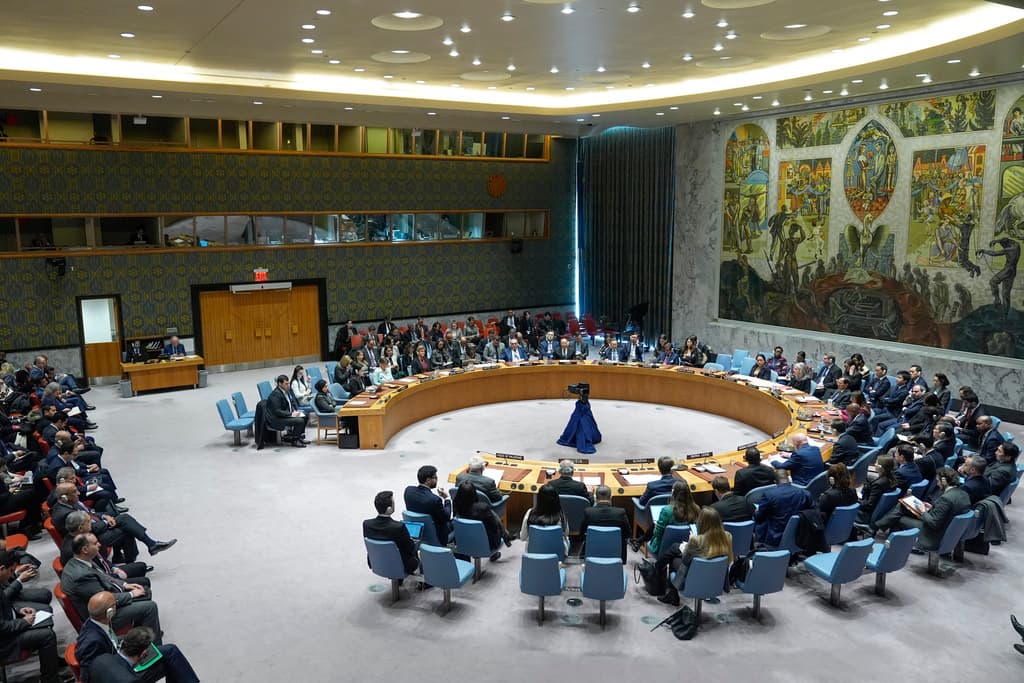The Biden-Harris Anti-American Plan
The administration wants to dilute America’s power in the Security Council and give it to Africa.

President Biden’s ambassador to the United Nations, Linda Thomas-Greenfield, is hawking the administration’s latest proposal — enlarging the Security Council. The idea is to add two permanent African seats on the Council, as well as a new seat for small developing islands, so they could amplify topics like “the impact of climate change.” Why, though, would America favor diluting its influence at the body of which it is the biggest funder?
For decades the scuttlebutt at Turtle Bay has been that its most powerful body, the Security Council, is unfairly structured. At its founding after World War II, the UN Charter gave special powers to the winners. Why, goes the bickering, should 2024’s top powers be bound to the world of 1945? Or, as Ms. Thomas-Greenfield tells NPR today, “the Security Council as it exists today does not represent the reality of today.” The UN brass is ecstatic.
Many there have long believed America’s top goal is world hegemony. Now Washington is in a power-sharing mode. In welcoming the new proposal, the UN spokesman, Stephane Dujarric, said yesterday that it addresses what Secretary General Guterres has long “lamented, which is the lack of African representation” among “the permanent members of the Security Council.”
Yet, even UN cheerleaders might need to rethink. There are practical questions. Can the Africans agree on which two countries get the coveted seats? South Africa? Nigeria? Egypt? Morocco? Also, the American proposal would deny the new African members the veto right afforded to the current five permanent members. Equity anyone? Also, why Africa? What about Latin America, which possesses no permanent seat?
And why is Asia represented only by Communist China? How about the world’s largest country, India, which is an actual democracy? If America really wanted to improve the UN, it would ignore the cliché of adding members to the Security Council. Even as is, the body is paralyzed by hopeless divisions. Long ago our Benny Avni suggested to ambassadors that the council would be more functional if it shrunk, rather than expanded.
One rotating seat for each of the five regional groups would suffice, and just the most powerful two, America and Communist China, could veto. “Just one,” retorted the only diplomat who at the time largely agreed with the idea, John Bolton, the former ambassador. It was clear which country he meant. So here is the most questionable aspect of the new council reform proposal: UN fairness aside, does adding Africans promote America’s interests?
Ms. Thomas-Greenfield claims it would help the council focus on crises it currently ignores, like Sudan’s civil war. In reality, the UN’s obsession with the Jewish state forces America to use its veto power almost exclusively to nix frivolous anti-Israel council proposals. Will those disappear? Egypt is currently at loggerheads with Israel over Gaza, and South Africa prefers maligning Israel on false “genocide” alllegations to dealing with its continent’s most burning issues.
The Security Council has changed only twice since 1945. In 1971 Red China took over the Free Chinese seat as part of an American-orchestrated maneuver to separate Beijing from Moscow. And, as often noted by the Ukrainian UN ambassador, Sergiy Kyslytsya, Russia hijacked the Soviet Union’s seat as the world was busy celebrating the 1991 new year. In both cases, American interests were ill-served. New UN “reforms” rarely end well.

